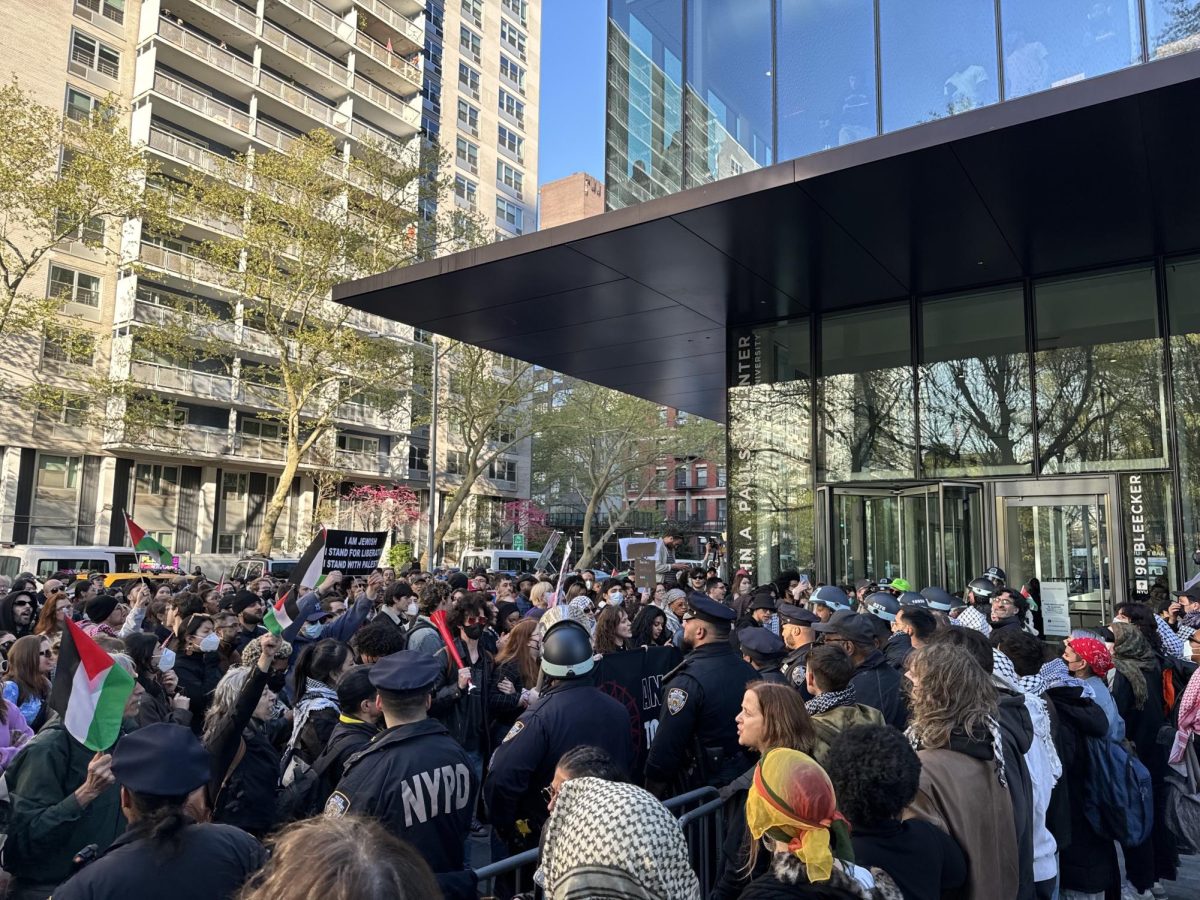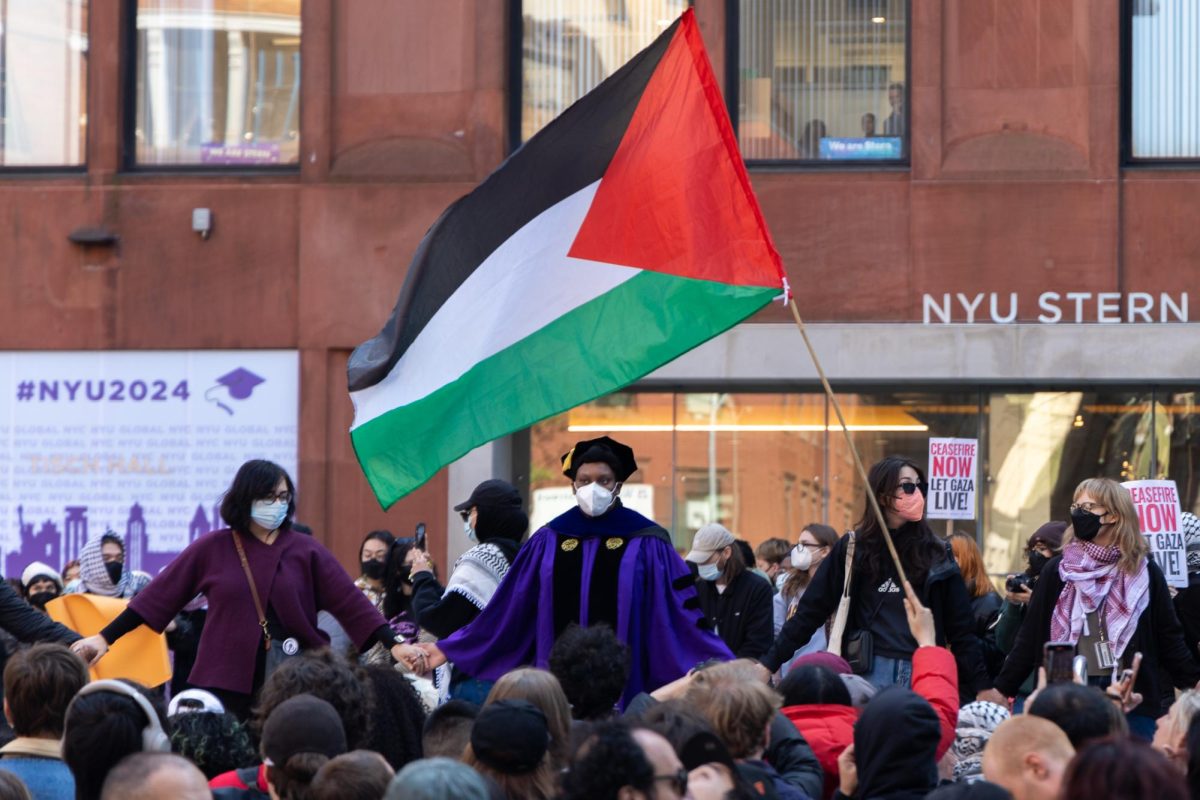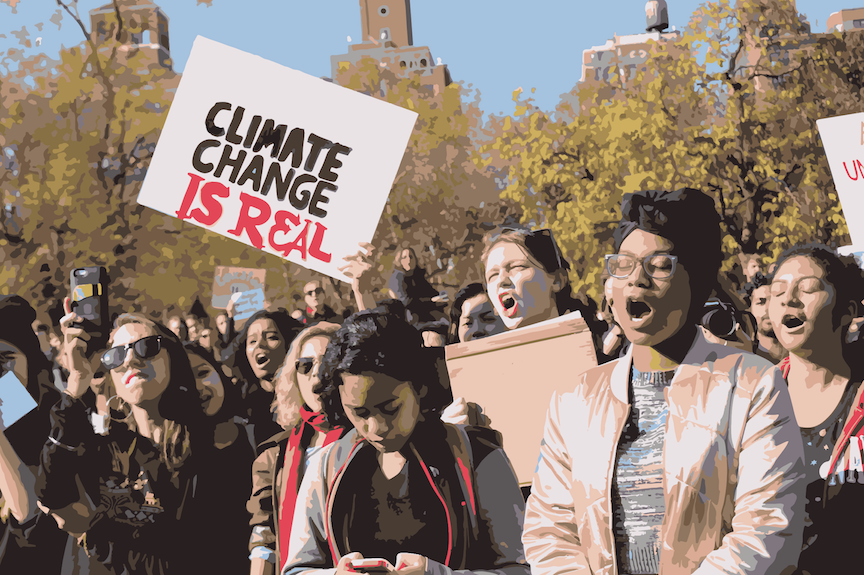How Can NYU Students Make An Impact?
Illustration by Polina Buchak and Veronica Liow
There are many opportunities for NYU students to make an environmental impact, such as participating in NYU Divest or the Community Agriculture Project.
Students can help save the environment as soon as they arrive at NYU. Through groups such as the Animal Welfare Collective and NYU Divest, students can advocate for their peers and the university to reduce their carbon footprints and fight against deforestation.
Earth Matters, NYU’s oldest environmental club, works with multiple eco-friendly clubs on campus to help make the university more environmentally-conscious overall. CAS senior and Earth Matters treasurer Aliakbar Hassonjee said that the group helps frame the umbrella of green initiatives at the university by holding its own meetings and working with the Office of Sustainability.
“We kind of try and cover all the different aspects of environmentalism, whether it’s from science or intersectionality with religion and culture, or whether it’s with the political landscape,” Hassonjee said. “We try and keep our events on a bunch of different scales, whether it’s just a small, general meeting that someone can come and talk about their ideas for organizations, or things that are significantly larger.”
Hassonjee said Earth Matters works with members of the administration to lower the university’s carbon footprint and bring about programs to get students more involved in learning about and adopting environmentally friendly practices. Earth Matters is also involved in campaigns under its own umbrella, including the Real Food Challenge and Take Back the Tap, among others.
“These are all campaigns that are part of larger movements across the country at different schools, and they’re operating here,” Hassonjee said. “Real Food Challenge is a very large sort of initiative that aims to get NYU’s food intake to be real — and that means a lot of different things. Real food is sustainable, ethical, ecological — it comes from verified sources that treat both their their farming processes in an ethical way, along with the workers and their employees as well.”
Other groups at the university provide more focused efforts on aiding specific aspects of the environment.
Animal Welfare Collective
The Animal Welfare Collective is a club that promotes plant-based diets and educates the student body on the benefits of veganism. This year, the group is shedding light on intersectional issues, including feminism and worker’s rights. A major project the AWC is enacting this semester is making Lipton Dining Hall plant-based for three days during Earth Week.
Community Agriculture Project
The Community Agriculture Project educates students about urban agriculture and sustainable farming. The group grows fruits and vegetables and hosts various events where students can listen to speakers, learn to cook sustainably and understand the process of agriculture.
New York Water Environment Association
NYU’s chapter of the New York Water Environment Association is a club based at the Tandon School of Engineering in which students and professors come together to discuss environmentally-friendly activist efforts. The group participates in Earth Day and works to further environmentalism and sustainability efforts.
NYU Divest
NYU Divest is an on-campus group that encourages the university to divest from its use of fossil fuels. The group created a petition that called on NYU President Andrew Hamilton and the board of trustees to stop investing in fossil-fuel companies and divest from their association with them. The group rallied around the Standing Rock movement, and it recently brought its demands to the board of trustees.
Sprout Up
Sprout Up is an organization that educates elementary school-aged children about science and the environment in California and New York City. Classes are taught by college students, and NYU’s Sprout Up chapter works with children in New York City Public Schools to help them better understand environmental science and advocate for change.
Email Natasha Roy at [email protected].
Natasha is a CAS sophomore studying journalism and public policy, and she's an editor-at-large at WSN this semester. Originally from a small town outside...












































































































































